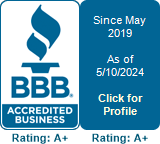Frequently Asked Restoration Questions
-
How might a flood damage my home?
Water can cause a laundry list of problems, especially when left untreated. Water can cause building materials to mold, break, and wear down faster. One specific example is buckling on your hardwood floors. Or mold on your walls and floors.
-
What happens during the water damage restoration process?
We determine whether we are dealing with clean or dirty water. When dealing with a clean water loss we assess building materials and decide what can be salvaged and what must be removed (i.e., flooring and drywall.) Once we have determined what is salvageable and what isn’t we begin removing non-salvageable materials. Once we have removed all non. Salvageable materials Air Movers and Dehumidifiers are set up throughout the affected areas. Our job is to get your home healthy and ready for reconstruction.
When dealing with dirty water (sewage) we remove all building materials it has encountered. Once all affected building materials are removed, we clean and disinfect all affected structures (subfloor, concrete, studs). When the home is cleaned and disinfected, we begin the drying process with Air Movers, dehumidifiers, and a HEPA Air Scrubber to filter any airborne bacteria.
-
What should I do after finding a water leak?
When you find a water leak it's important to find the source. Sometimes you can stop the leak by simply turning a valve. In some cases, you may need to shut off your main water line. Finding the source is key because it determines how we will treat your loss. We also have plumbers we can refer to help repair any damaged plumbing.
-
Why is it important to handle water damage immediately?
The longer the water sits the more secondary damage it causes. Even clean water losses left untreated can quickly turn into contaminated water causing more building materials to be removed. Also, when you do not report or take care of a water loss immediately to your insurance provider, they may not cover your loss due to “negligence.”
-
What to do when the septic or sewer system backs up?
When you have a sewage backup STOP using all water immediately. Continuing to use the water will cause more water to back up. Call us immediately and we can set you up with a preferred plumber to unclog your drain.
-
Can you get sick from sewage backup?
Yes, sewage can be very dangerous. It can cause you to experience vomiting and diarrhea when you come into close contact with it.
-
Is a 100% mold-free space possible?
No, mold spores are all around us. When a mold test is done. A. comparison is done with outside air. As long as the air inside the home/structure is in the same range as the ambient air, the home is safe. The problem begins when the mold numbers are outside of the norm.
-
I see mold, but there is no odor, why?
If you see mood but don’t smell it, it most. Likely means the mold has been there for a while and the around has dried on its own. The problem is if water affects that area again the mold already being there will speed up the damage.
-
I think I found mold growing in my home. How do I test the mold?
We don’t personally perform mold tests, due to it being a conflict of interest. We use a third-party company Rex Environmental.
-
Why is my wood floor cupping?
When water gets under and in wood floors, the water will start being absorbed into the flooring. In some cases, we can put drying mats on set floors and pull the moisture out. If possible, all you need after is to sand them down and refinish the floor. In cases where too much water has been absorbed, we remove the flooring and dry the subfloor. Getting it ready for new flooring.
-
What forms of payment do you accept?
Visa, Mastercard, American Express, Discover, Zelle, Cash and Check.
BROWSE OUR WEBSITE
CONTACT INFORMATION







BUSINESS HOURS
24/7, 7 day a week, 365 a year
Emergency Services Available | 24-hour emergency
We can also be found at: Homeadvisor
OUR LOCATION


